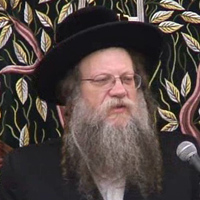- Torah Portion and Tanach
- Nitzavim
79
On the other hand, the word Vayelech signifies motion, progress, change and a forward thrust in behavior and concepts. It seems that these two Torah readings cancel each other out, for one signifies unchanging steadfastness while the other champions progress, change and motion. Such an understanding of Torah and Judaism is very superficial and erroneous.
Rather, the two traits indicated in the opening words of these two Torah readings essentially complement each other. They do not come to point out a disagreement, one with another, but to point out that Judaism requires both traits to be present within every Jewish individual and the Jewish people as a whole, in order that Torah and tradition will survive and prosper in Jewish society.
An important and necessary part of our Jewish character and that of Jewish society, is our stubbornness – our refusal to abandon what we have been commanded by the Lord to observe and practice. This commitment can never be modified or adjusted, acceding to the passing social norms, and changing human mores.
We are witness, in our times, how quickly acceptable human behavior and ideas can rapidly change, so that what was unthinkable and perverse a few short decades ago is today not only acceptable, but behavior that should be championed, admired, and, in some cases, even enforced legally against ones wishes.
At the same time, Jewish society cannot remain eternally frozen and incapable of adjustment to new situations and differing societal changes. Our recent experience with the Coronavirus, with the various halachic responses to it concerning prayer services, study sessions and personal behavior, testify to the adaptability that the Torah and Jewish tradition, dating back to Sinai, has built-in in order to be able to deal with all possible situations, no matter how unforeseen.
The only question that remains is how to achieve a proper balance between Nitzavim and Vayelech. We are witness to the fact that helter-skelter progress and the adoption of new norms leads to spiritual destruction and is an enormous danger to Jewish survival. On the other hand, we certainly need to recognize that 21st-century Israel or the United States is not the same as 19th century eastern and central Europe. Every individual, as well as every group within Jewish society, must feel its way slowly and carefully, to try and find the proper balance that fits them, and allows them to retain the blessings of tradition and faithfulness, while still dealing with current problems and situations. Understandably, this process is an ongoing one, and it is one of great delicacy and nuance. Nevertheless, it is part of our drive for eternity and the enhancement of our religious society.
Shabbat shalom
Rabbi Berel Wein

Playing an Active Role in History
Israel National Torah
Baruch Gordon | Elul 21 5780

In My Life, I’ve Loved Them All
Rabbi Stewart Weiss | 20 Elul 5783
Connecting Teshuva & the Final Redemption
Rabbi Netanel Yossifun | Elul 27 5782
G-d Gives Tests – and Provides the Answers
Rabbi Moshe Leib Halberstadt | 22 Elul 5783

Double Parashiyot
When is it a good idea to have doubles?
Rabbi Yirmiyohu Kaganoff

Mourning Customs During the Omer
Rabbi Eliezer Melamed | 5764

Mourning Customs During the Omer
Rabbi Eliezer Melamed | 5764

The Laws of Tumas Meis
Rabbi Yirmiyohu Kaganoff | 5772

Tolerance but Not at All Costs
Ayn Aya Shabbat v, 73
Rabbi Ari Shvat | Iyar 5785
Daf Yomi Makkot Daf 20
R' Eli Stefansky | 30 Nisan 5785

Ask the Rabbi: Scratching Improperly Parked Cars
Rabbi Daniel Mann | Iyar 5785





